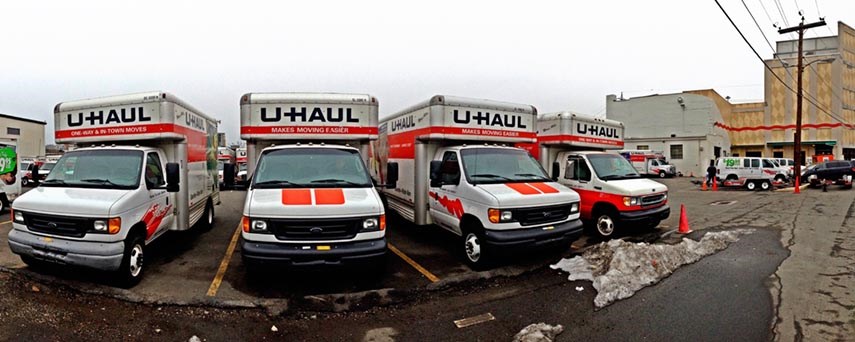A lack of self-storage businesses for sale in B.C. is leading to new developments and conversion of shopping mall space into storage lockers.
With average vacancy rates south of 10% and capitalization rates north of 5%, there is little incentive for owners to sell, said Vadim Kobasew of Re/Max Commercial, who used to specialize in the sector across B.C.’s Interior.
But, Kobasew said, it is hard to get listings these days.
“The owners know the market conditions. Sure, they can get a lot of money if they sell, but if they put it in the bank they are only making 1%.”
The lack of product is prompting some developers to build their own storage facilities or renovate other commercial properties into storage units.
Retire West Communities is doing the former. It’s building a large self-storage community in West Kelowna near to residences of its new Sage Creek retirement community.
U-Haul Co. is doing the latter. It has redeveloped the former Kelowna Zellers store into a company-owned and -operated moving and storage outlet. Renovation of the 110,000-square-foot store has created more than 1,000 indoor climate-controlled self-storage units.
“The Okanagan Valley is one of the fastest-growing communities in B.C.,” noted Horace Martin, U-Haul Co. of British Columbia’s president.
Local commercial agents said that Martin’s acquisition team had been scouting for self-storage facilities in the area for at least two years before deciding to convert the old Zellers store that had been vacant for two years.
Lack of self-storage opportunities all across Canada is also suspected to be a key reason why Toronto-based Brookfield Asset Management went shopping in the United States.
Brookfield has acquired an $830 million stake in Simply Self-Storage of Florida, the eighth-largest self-storage operator in the U.S. It owns more than 175 facilities.
The purchase proved tricky, because Simply did not want to sell, but it was overruled by its majority owner, Bahamas-based Tavistock Group.
“The investor [Tavistock] was wanting to exit, and we did not want to sell,” Kurt O’Brien, Simply CEO, told the SpareFoot Storage Beat, an industry publication. “We wanted to maintain the business.”
Two primary factors influence storage, according to Kobasew: the huge amount of stuff that people collect and their reluctance to throw any of it away.
On average, one-third of self-storage clients store their keepsakes for three years, resulting in a steady cash flow for storage facility owners, he noted.
There are other quirks that make self-storage property distinct from most commercial real estate. The buildings can be in less-than-desirable locations: small towns, noisy roads on the outskirts of cities or tucked in behind industrial areas are all fine. Also, absentee owners can often manage a self-storage business remotely with a minimum of local staff.
In Metro Vancouver, typical rent for a 100-square-foot self-storage unit ranges between $1.85 and $2.10 per square foot, which, according to a recent study, is close to the typical apartment rent in most Metro suburban markets.
“Storage lockers are a simple investment,” noted Vancouver real estate consultant Ozzie Jurock. “There’s often no heat, little maintenance, and if you want to make it a luxury unit you put in a light bulb.”



